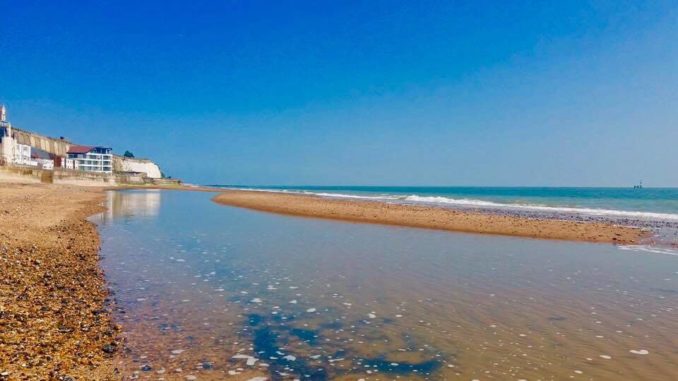
Ramsgate Main Sands no longer qualifies for its blue flag after Environment Agency sea water tests resulted in a rating of good instead of excellent.
The water had been rated as excellent in 2015 and 2014.
But tests between May 1st 2016 — September 30th 2016 have resulted in the downgrade.
In order to apply for a Blue Flag beach award water quality must be classified as ‘Excellent’.
Thanet District Council has now applied for a Seaside Award at main sands. This is a nationwide standard for the best beaches across the UK – a symbol that visitors are guaranteed to find a clean, safe, attractive and well-managed coast.
An official announcement of these awards is expected at the end of May.
A water sample taken at Ramsgate on 4 August 2016 was found to contain a level of bacteria that exceeded the threshold for excellent water quality. At the time of the reading, the Environment Agency’s water sampler noted high winds, rain and a rough sea condition often associated with higher readings due to the remobilisation of sediment and associated contamination of faecal bacteria.
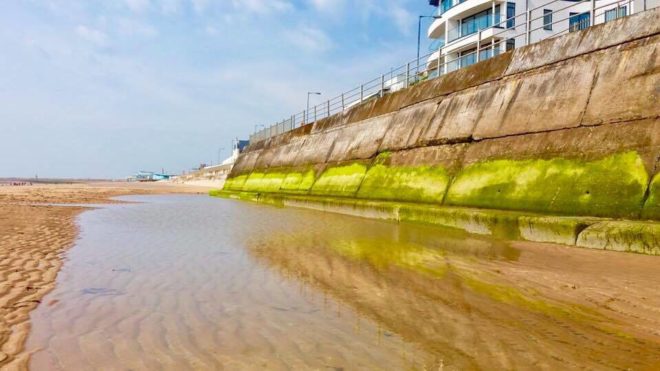
High readings were also recorded on the 7th and 16th September 2016.
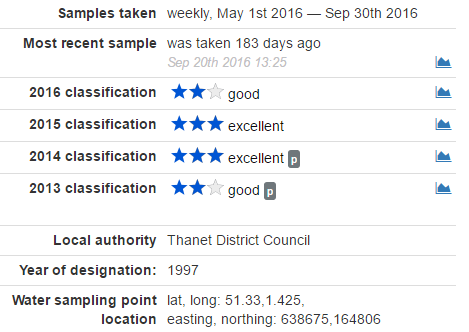
There is no option to appeal the readings and the Environment Agency has informed TDC that there is no way of accurately pinpointing the potential events or combination of events impacting water quality at the site on those dates.
The quality of bathing water can be affected by factors such as run-off from roads and/ or agricultural land; storm overflows from the wastewater network; boat and marine activities; misconnections of wastewater pipes into the surface water system; animals, such as dogs or seabirds, on the beach; and litter. This can be made worse by strong tides or heavy rainfall.
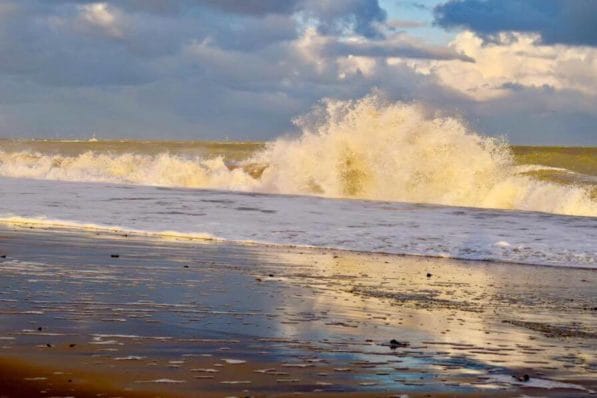
Thanet council says there is no evidence the high readings are the result of aggregates or dredging carried out at the port.
The Western Undercliff Beach has retained its excellent water quality rating.
What’s being done to improve bathing water quality at Ramsgate Main Sands?
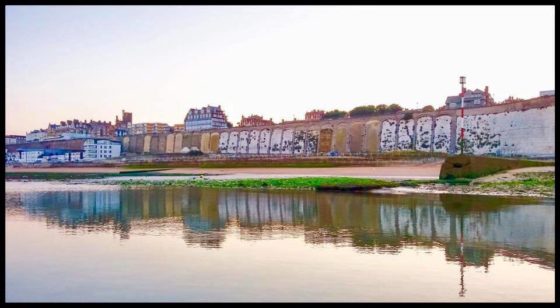
- Thanet District Council, the Environment Agency and Southern Water are working in partnership to understand more about the factors which may be affecting water quality in this location.
- Any high sample readings recorded at Ramsgate Main Sands during the 2017 bathing water season will be retained for additional analysis (known as Microbial Source Tracking).
- The council continues to work closely with the Environment Agency and Southern Water to help people learn more about what impacts bathing water quality and explain the simple steps that can be taken to protect and enhance our beaches.
Three of the 20 water quality samples that were taken at Ramsgate in 2016 had elevated levels of bacteria.
The Environment Agency investigated specific potential sources of pollution such as the dredging of the harbour, the Ramsgate Regatta and seaweed accumulation but say these do not seem to have caused the elevated bathing water results in 2017.
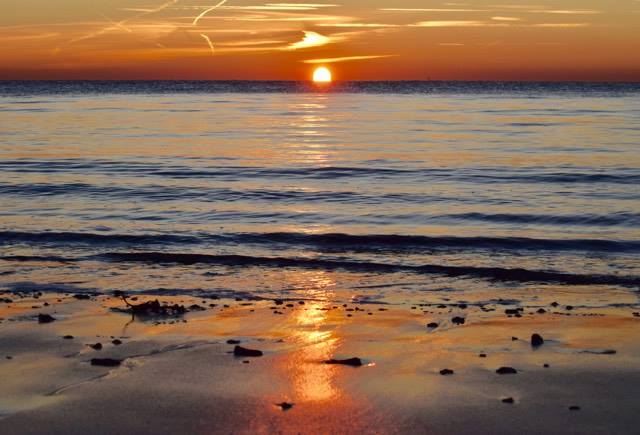
Southern Water has teamed up with Thanet District Council, Kent County Council, the Environment Agency, and local community and business groups, to address issues which affect the bathing water quality.
Work has involved finding and fixing misconnections, deep cleaning highways and surface water sewers as well as working to highlight steps people can take to help keep beaches and bathing waters clean.

Councillor Lin Fairbrass, Deputy Leader and Cabinet Member for Community Services at Thanet District Council, said: “We should be proud of the quality of our beaches and Thanet currently holds more award winning beaches than any other district authority in the country.
“The water quality classification of Ramsgate Main Sands has been consistently good which means it is clean and safe for swimming. It is however not unusual for even the cleanest of beaches to experience elevated levels of bacteria, so everyone has a part to play in protecting and improving our beaches.”
Bathing Water Quality Legislation
- Every year, from May to September, the Environment Agency monitors the water quality of more than 400 beaches throughout the UK.
- These beaches, known as ‘designated bathing water’ are those used by a large number of bathers and are required to meet strict European guidelines on water quality.
- There are 13 designated bathing waters in the Thanet district.
- The way bathing water quality is measured changed in 2015 with the implementation of more stringent new standards.
- The Environment Agency now uses four years’ worth of data to assess water quality and classify it as either ‘Excellent’, ‘Good’, ‘Sufficient’ or ‘Poor’.
- This change is the result of a revision to the EU Bathing Water Directive and means that achieving the new water quality standards are almost twice as tough as before.
What are Blue Flags and Seaside Awards?
- The Blue Flag beach award, issued in the UK by Keep Britain Tidy, is recognised internationally and widely considered to be the gold standards for beaches.
- There are several criteria for a blue flag beach – environmental education activities, on-site beach information, environmental management, safety and services and water quality.
- Keep Britain Tidy’s Seaside Award is the nationwide standard for the best beaches across the UK – a symbol of quality which ensures visitors are guaranteed to find a clean, safe, attractive and well-managed coast.
Last year Thanet was awarded seven blue flags and three seaside awards.
This year TDC has applied for six blue flag beach awards and four seaside awards .

